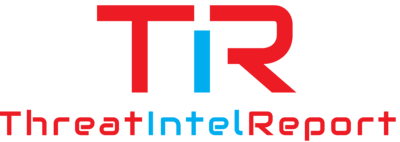In July 2024, Nokia Corporation confirmed a data breach that exposed the personal details of 7,622 employees. This breach was claimed by a threat actor known as 888, who allegedly exploited a third-party service provider to access and leak the personal identifiable information (PII) of Nokia staff. The stolen data was shared on a well-known dark web forum, raising concerns about its potential misuse.
What Happened?
The breach did not involve Nokia’s internal systems but was instead the result of a third-party data breach. The hacker, 888, reportedly infiltrated a service provider handling employee data, exposing sensitive details like:
- Employee names
- Job titles
- Email addresses
- Phone numbers
- Other personal information related to their employment(CyberSec UK)(World Economic Forum).
Though the stolen data did not include highly sensitive information such as Social Security numbers or financial records, the exposed PII still presents significant risks, especially in terms of phishing attacks and identity fraud.
The Role of Third-Party Risk
This breach highlights the growing threat posed by third-party risk in the corporate sector. While Nokia’s systems were secure, the company became vulnerable through its relationship with an external service provider. Attackers often target smaller, less-secure vendors that handle critical information for larger corporations.
The breach also emphasizes the need for robust vendor management practices, particularly in ensuring that service providers implement strong security controls and regular audits to mitigate potential vulnerabilities.
Potential Impact on Nokia Employees
While the breach did not expose financial or medical information, the personal data that was leaked could still be used to carry out social engineering or phishing attacks. Cybercriminals could impersonate Nokia or the third-party service provider to trick employees into providing further sensitive information or accessing their accounts. Additionally, the leaked information could be sold on the dark web or used for identity theft.
Nokia has advised its employees to remain vigilant, recommending that they:
- Monitor for phishing emails that may exploit the exposed details.
- Be cautious when responding to unsolicited communication, particularly those that reference employment or job roles.
- Consider changing their personal email addresses and contact information if they suspect any unauthorized use(CyberSec UK)(World Economic Forum).
Nokia’s Response
Nokia responded swiftly to the breach by:
- Engaging with external cybersecurity experts to assess the scope of the incident.
- Collaborating with the affected third-party provider to secure the compromised systems.
- Notifying all affected employees and offering guidance on how to protect themselves from potential follow-on attacks(World Economic Forum).
Nokia has also been working with law enforcement and relevant regulatory bodies to track down the perpetrator and prevent further exploitation of the leaked data.
Lessons Learned
This breach demonstrates the need for large organizations like Nokia to:
- Regularly audit third-party vendors to ensure compliance with security standards.
- Implement strict access controls for vendors managing sensitive employee or company data.
- Invest in real-time monitoring systems that can detect and respond to data breaches at any point in the supply chain.
For employees, this breach serves as a reminder of the importance of cyber hygiene. They should use strong, unique passwords, enable multi-factor authentication (MFA), and remain cautious about any unusual emails or communications related to their employment.
Conclusion
The Nokia employee data breach underscores the ongoing risks posed by third-party service providers. Even well-secured organizations can become vulnerable if their vendors do not adhere to strict cybersecurity measures. Moving forward, Nokia and other large enterprises must prioritize securing the entire supply chain to protect sensitive data from future breaches.
Further Reading
- Understanding Third-Party Risk in Cybersecurity
- How to Protect Against Data Breaches
- Nokia’s Official Statement on the Breach
- How Phishing Attacks Exploit Data Breaches
